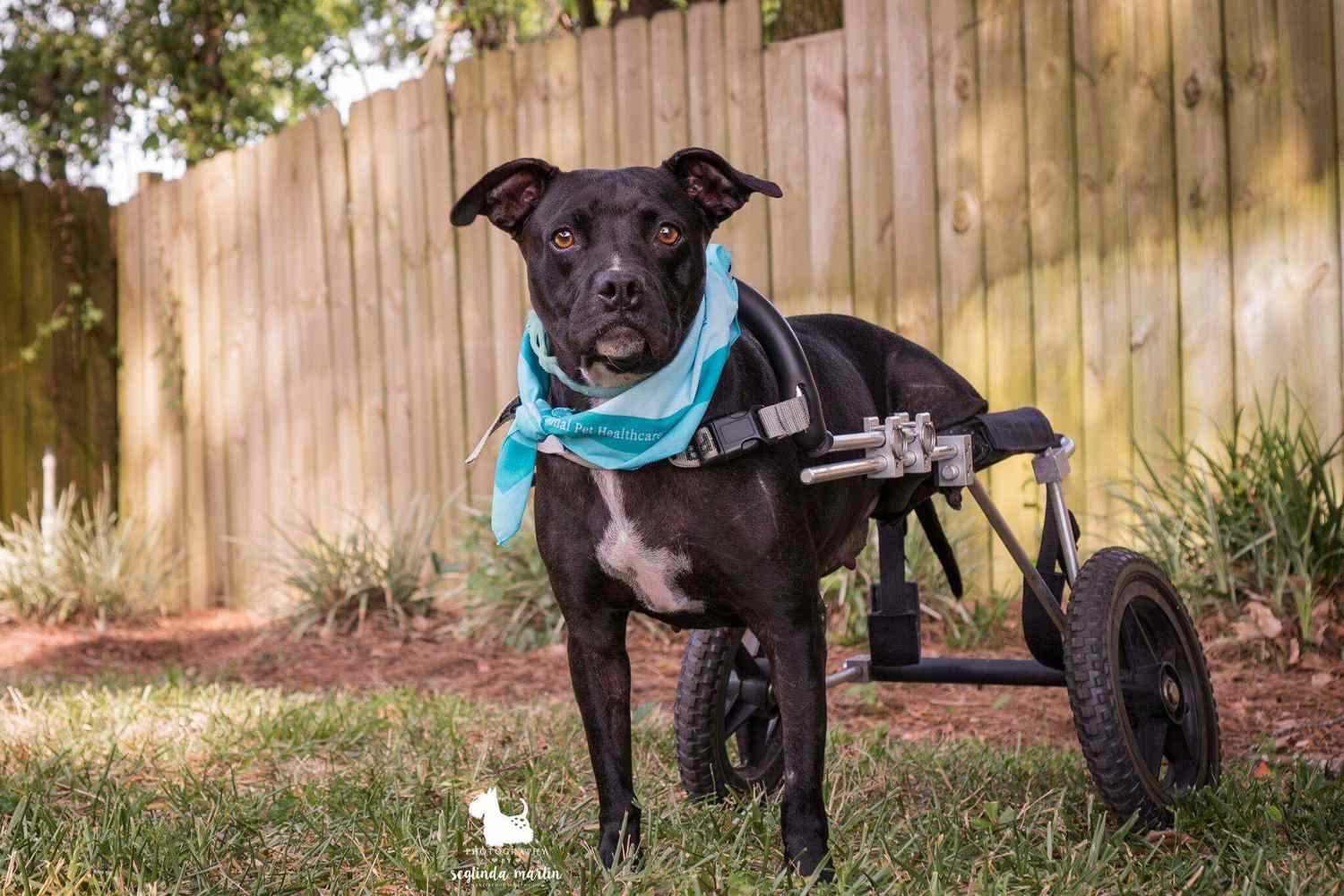
As soon as Ericka Kofkin met Zosia she knew the lab/pug/pit mix was perfect – despite having lost her two rear legs soon after a horrific train accident.
Rescuers found Zosia – they think she’s about 3 years old – clinging for life near the side of the tracks. She would have died if an animal control officer hadn’t spotted her that April morning and rushed her to Florida’s Jacksonville Animal Care and Protective Services, where vets immediately took the injured pup into emergency surgery.
“When we met, it was just a few days after her sutures had come out and less than a month since she’d lost her legs,” said Kofkin, 31. “I expected her to be sore or struggling with mobility, but it was like she never even noticed her legs were gone. She wanted to snuggle and play and move around.”
As she drove away from Zosia’s foster home, Kofkin told herself that she wasn’t ready to welcome another pet into her life. She already had a cat and a service dog. Still, she couldn’t get Zosia out of her mind.
“Several days went by, but no matter how hard I tried, I couldn’t shake the feeling that Zosia was already my dog,” she said. “I finally had to [admit] that I couldn’t live without this dog in my life.”
Jennifer Deane, president and founder of the pit bull rescue group Pit Sisters, isn’t surprised. Deane sensed this “shelter favorite” would have a special impact on her friend, just as she had on the shelter staff, visitors and vet who volunteered to foster Zosia as she recovered.
“A fellow animal advocate had sent me [Zosia’s] intake picture and it was graphic. I called Jim Crosby [the shelter’s division chief] and made plans to see her the next day,” said Deane. “She had just had surgery and she scooted her little body over to me and started giving me kisses. She wasn’t sad, she was trusting. She would just wiggle her back end, even though she didn’t have much of one.”
Deane pitched in to help provide for Zosia. She had her measured for a wheelchair. Then she shared Zosia’s story with those who manufactured wheelchairs and convinced the company to allow her group to buy Zosia a refurbished one for a discounted price.
“It was fate, even though it sounds cliché,” said Deane. “When [Kofkin] told me she had to meet her, I told her ‘She is a special needs dog, but she is fantastic.’ That’s when we talked about what we wanted to do with her.”
Perhaps the best part of Zosia’s upbeat attitude is that it helps her continue the mission of her namesakes, Ellyse and Marilyn Zosia. In 2014 the couple founded “I Am Adaptive.” The organization works to rid the negative words and attitudes surrounding “handicapped” and “disabled” as it strengthens the adaptive athletic community who experience amputations, paraplegia, muscular dystrophy, traumatic brain injuries, deafness, and other conditions. In her own way, Zosia the lab/pug/pit mix does her part.
“Her job is to bring smiles,” said Kofkin of Zosia’s “work’ that has included perks such as hobnobbing with celebrities, including motivational speaker and performer Jennifer Adams, who was born missing limbs.
“You can imagine my shock and awe when the very first athlete Zosia got to work with was the lovely Jennifer Adams herself!,” said Kofkin. “She came in, and saw my dog, with no legs and … it just felt special. They connected and snuggled and it was the most overwhelming and wonderful experience imaginable.”
Like Adams, Zosia doesn’t let her adaption hold her back.
Just a week after she moved in with Kofkin, she pulled herself up into a big armchair to relax.
“She chases squirrels outside, jumps over parking bumpers in her wheelchair, and even tries to take it up the stairs (sometimes I have to help her a little bit, though),” said Kofkin. “Zosia’s personality is confident, determined and joyful.”
And that personality is on regular display when she and Kofkin visit groups such as those at “I Am Adaptive” and elsewhere.
Crosby, an internationally known behavior expert and author, remarked that Zosia’s influence on others is a special reward for the center staff that nursed her back to health.
“It is super to see something like this, an emotional support animal that can serve as an example to others,” he said. “People with profound disabilities meet her and realize that maybe they are not as disabled as they thought they were.”
